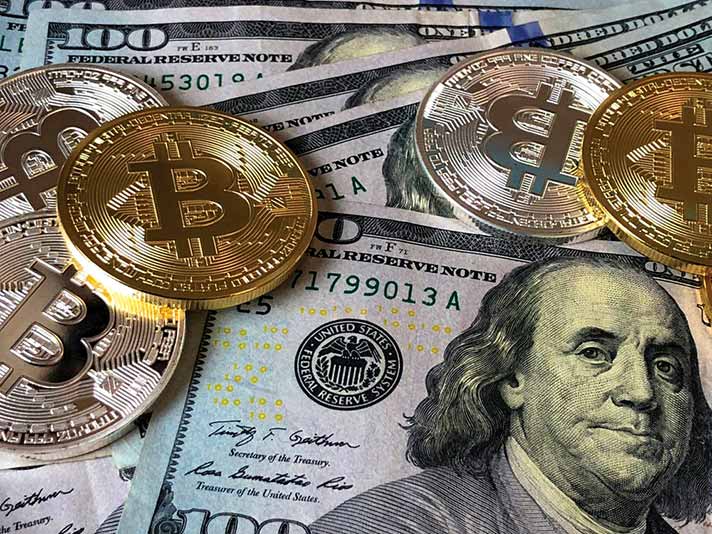On Money & More – June 2021
Dogecoin (pronounced dowzh·koyn) traded at $.0054 on January 1st. By May, the price has reached over $.70- or over 12,000% higher! “Crypto-currency” has become the cocktail party (remember those!) conversation of the day. But, caveat emptor, this month’s article is a brief history of financial bubbles.
Bubbles have typically been focused on something “new.” We all remember the internet bubble, where companies with promise (but not profits), were briefly worth billions of dollars. The housing bubble? While houses have been around since the beginning of modern history, securitized mortgages have not! Diversifying mortgage risk led to lower lending standards, and…well, you know the rest! With the frequency of financial bubbles in the 21st century, if feels that this is a new phenomenon. But, it isn’t! Financial historians will often refer to the original bubble—the Dutch Tulip mania of 1634.
The Dutch tulip bubble had all the markings of modern financial bubbles. A new technology; Tulips had arrived just 30 years prior from Turkey, and cultivating techniques had allowed for accelerated production of flowering tulips. Liquidity; Tulip contracts began trading on the Amsterdam exchange, and were often purchased using margin derivatives contracts (i.e. borrowed money). Demand; Holland had a merchant middle class, unlike many of their European neighbors, which created a market for tulips beyond the wealthy elite.
This perfect storm created one of the most remarkable financial bubbles in history. Prices began to climb in 1634, reaching a crescendo estimated at as much as $750,000 (current dollars) for a tulip bulb! Most bulbs were traded between $50,000-$150,000 each. However, with many of these bought with leverage, a drop in prices created margin calls, which cascades prices lower. By 1637, the bubble had burst and prices returned to the previous levels1.
With that history as a guide, let’s talk about cryptocurrency. After all, not everything is a bubble. And, perhaps, crypto is not. Some speculate that a cryptocurrency’s value is to serve as a gold replacement, or an alternative to debased sovereign currencies. Unlike a financial bubble, some would compare the current mania to the Gold Rush era—where money can be made if you discover the motherlode. And, while each of these views have merit, as investment advisors we are left asking the question “What’s is a cryptocurrency’s intrinsic value?”
Determining the worth of a currency is tricky business. The US-dollar is backed by the “full faith and credit of the US government.” It used to be held to a gold-standard, but since the Nixon administration has been more elusively backed by US Gross Domestic Product. Bitcoin has limited supply, and thus far, endless demand. But, the price is backed by the assumption of a growth in demand. That is, the assumption that someone will pay you more than you paid. Sound familiar?
Widespread acceptance of crypto-currencies does have the potential to increase demand. And if so, there will undoubtedly be big winners from those who speculate. But, a lottery ticket is just that. While we don’t deny the potential of the crypto space, the dangers are also very evident. Caveat emptor.
1 https://www.investopedia.com/terms/d/dutch_tulip_bulb_market_bubble.asp
All opinions and data included in this commentary are as of May 11th, 2021 and are subject to change without notice. The opinions and views expressed herein are of Cutler Investment Counsel, LLC and are not intended to be a forecast of future events, a guarantee of future results or individual investment advice. This article is provided for informational purposes only and should not be considered a recommendation or solicitation to purchase or sell securities. This information should not be used as the sole basis to make any investment decision. The statistics have been obtained from sources believed to be reliable, but the accuracy and completeness of this information cannot be guaranteed. Investing involves risk, including the potential loss of principle. Neither Cutler Investment Counsel, LLC nor its information providers are responsible for any damages or losses arising from any use of this information.

 Matthew Patten is CEO and Investment Portfolio Manager at Cutler Investment Group. He is a graduate of Jacksonville Elementary School and South Medford High School. Matt earned BA degrees in Economics and Environmental Geo-Sciences from Boston College and a MBA from the University of Chicago.
Erich Patten is President and Chief Investment Officer at Cutler Investment Group. He is a graduate of Jacksonville Elementary School and South Medford High School. Erich earned a BS in Economics from the Wharton School, University of Pennsylvania, and a Masters in Public Policy from the University of Chicago.
Matthew Patten is CEO and Investment Portfolio Manager at Cutler Investment Group. He is a graduate of Jacksonville Elementary School and South Medford High School. Matt earned BA degrees in Economics and Environmental Geo-Sciences from Boston College and a MBA from the University of Chicago.
Erich Patten is President and Chief Investment Officer at Cutler Investment Group. He is a graduate of Jacksonville Elementary School and South Medford High School. Erich earned a BS in Economics from the Wharton School, University of Pennsylvania, and a Masters in Public Policy from the University of Chicago.